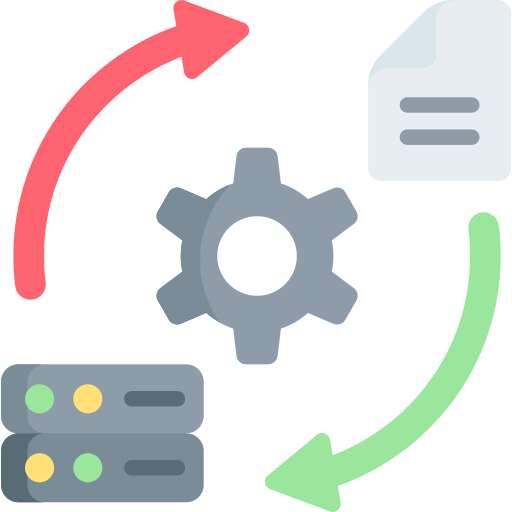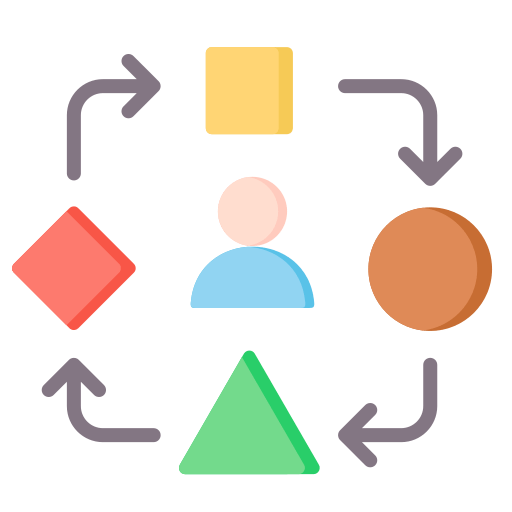Home » Data Science Evening Classes in Australia
Data Science Evening Classes in Australia
- Accredited Certification
- Specialized Tracks for Career Growth
- Comprehensive Curriculum with Real-Time Projects
Key Highlights

Industry-Experienced Instructors

Comprehensive curriculum

Expert faculty with industry experience

Prestigious certification upon completion

Ongoing support and resources post-program

Live Online Training

Career advancement opportunities

Transformative learning experience

Flexible Learning Schedule
About the program
This program is designed to provide participants with advanced knowledge and practical skills in data science. It covers a wide range of topics, including data analysis, statistical methods, machine learning algorithms, data visualization, and more.
Participants will have the opportunity to learn from industry experts through a combination of lectures, hands-on exercises, and real-world projects. The curriculum is carefully crafted to ensure that participants gain a deep understanding of key concepts and acquire the necessary skills to excel in today’s rapidly evolving data science landscape.
Upon successful completion of the program, participants will receive a certification that demonstrates their expertise in data science, enhancing their career opportunities in the field. With a focus on practical learning and industry relevance, this program equips participants with the tools and knowledge they need to succeed in the dynamic world of data science.
What Will You Learn?
Data Analysis & Visualization
Learn how to analyze data and present your findings in a compelling way
Statistical Methods
Understand and apply statistical techniques to data analysis.
Machine Learning
Get hands-on experience with machine learning algorithms and techniques.
Big Data Technologies
Learn about the tools and technologies used to handle large datasets.
Programming Skills
Enhance your programming skills in languages such as Python and R.
Domain Knowledge
Specialize in finance, healthcare, or marketing to apply data science effectively.
Transitioning to a new career
Transitioning from marketing to data science seemed challenging initially, but this program facilitated a smooth shift. The practical projects and guidance from mentors were incredibly beneficial. Within half a year of finishing the course, I secured a position as a data scientist at a prominent tech firm.
Anna Müller
Moving from finance to data science presented its challenges, but the program’s extensive syllabus and practical projects bolstered my confidence and honed my skills. Now, I am delighted in my role as a machine learning engineer, grateful for the career switch.
Max Fischer
Coming from a teaching background, I had reservations about transitioning into data science, but the program’s support and hands-on approach made it feasible. The job placement assurance was a significant motivator, and I am now thriving as a data analyst at a prestigious firm.
Julia Schneider
Transitioning to a career in data science was a dream come true for me, and the Data Science Certification Program played a crucial role in making it happen. The hands-on projects and practical experience helped me build a solid foundation in data analytics and machine learning. Now, I’m thriving as a data scientist, leveraging this certification to explore exciting opportunities in the tech industry.
Markus Wagner
The real-time projects and industry-focused training helped me transition from sales to data science. The mentorship was top-notch, and I secured a data scientist position within seven months of completing the program.
Jonas Weber
Switching from HR to data science felt like a leap, but the structured learning path and practical projects made the transition seamless. I now thrive as a data engineer and find immense satisfaction in my new role.
Julia Schmidt
As a software developer, I possessed some technical skills, but this program was instrumental in refining my expertise with the specific tools and techniques essential for data science. The program’s strong job placement support enabled me to secure a role as a data scientist at a prominent corporation.
Lukas Müller

Professional Growth and Development

Increased Opportunities and Advancement

Alignment with Personal Goals and Values

Adaptability and Resilience
Who Can Apply for the Course?
- Recent graduates looking to enter the field of data science.
- Professionals from various industries seeking a career change into data science roles.
- Data enthusiasts with a strong interest in data analysis, machine learning, and data visualization.
- Current students interested in gaining practical data science skills alongside their academic studies.
- Managers and executives seeking data science knowledge for informed decision-making in their organizations.
- Engineering graduates aspiring to specialize in data science and machine learning.

Roles That Data Scientists Can Fulfill
Data Analyst
Analyzes data to extract actionable insights and support decision-making processes.
Machine Learning Engineer
Develops and implements machine learning models and algorithms.
Data Engineer
Designs, builds, and maintains data pipelines and infrastructure
Business Intelligence Analyst
Uses data to help businesses make informed decisions and strategies.
Research Scientist
Conducts advanced data research and experiments to develop new methodologies.
Quantitative Analyst
Applies mathematical models to solve financial and risk management problems.
Data Science Course Curriculum
Week 1: Introduction to Data Analytics
- Overview of Data Analytics
- Importance in various industries
- Career paths and opportunities
Week 2: Excel for Data Analytics
- Data entry and formatting
- Basic formulas and functions
- Pivot tables and charts
Week 3: Introduction to SQL
- Database concepts
- Basic SQL queries (SELECT, WHERE, JOIN)
- Data manipulation (INSERT, UPDATE, DELETE)
Week 4: Data Visualization with Excel and Introduction to Python
- Creating visualizations in Excel
- Basic Python programming
- Using Jupyter Notebooks
Week 5: Advanced Excel Functions
- Advanced formulas and functions
- Data analysis tools (Solver, Analysis ToolPak)
- Macros and VBA basics
Week 6: Advanced SQL
- Complex queries
- Subqueries and CTEs
- Indexes and performance optimization
Week 7: Python for Data Analysis
- Introduction to Pandas and NumPy
- Data manipulation and cleaning
- Basic data visualization with Matplotlib and Seaborn
Week 8: Data Wrangling and Transformation
- Handling missing data
- Data transformation techniques
- Combining and merging datasets
Week 9: Data Visualization with Python
- Advanced visualization techniques
- Customizing plots with Matplotlib and Seaborn
- Interactive visualizations with Plotly
Week 10: Introduction to Tableau
- Tableau interface and basics
- Creating dashboards
- Advanced visualization techniques
Week 11: Reporting and Presentation Skills
- Effective communication of data insights
- Creating reports and presentations
- Storytelling with data
Week 12: Power BI for Data Visualization
- Introduction to Power BI
- Data modeling and DAX
- Creating interactive dashboards
Week 13: Descriptive and Inferential Statistics
- Measures of central tendency and dispersion
- Probability distributions
- Hypothesis testing
Week 14: Introduction to Machine Learning
- Machine learning concepts and workflow
- Supervised vs. unsupervised learning
- Model evaluation and selection
Week 15: Regression Analysis
- Linear regression
- Multiple regression
- Model diagnostics and performance metrics
Week 16: Classification Techniques
- Logistic regression
- Decision trees
- Model evaluation metrics
Week 17: Introduction to Big Data
- Big data concepts
- Overview of Hadoop and Spark
- Use cases and applications
Week 18: Working with Spark
- Introduction to PySpark
- Data processing with Spark
- Machine learning with Spark MLlib
Week 19: Cloud Computing for Data Analytics
- Introduction to cloud platforms (AWS, Azure, GCP)
- Data storage and processing in the cloud
- Using BigQuery and other cloud-based tools
Week 20: Advanced Python Libraries
- Advanced data manipulation with Pandas
- Time series analysis
- Geospatial data analysis
Week 21: Capstone Project Proposal
- Identifying a real-world problem
- Data collection and preprocessing
- Project planning and milestones
Week 22: Capstone Project Development
- Data analysis and visualization
- Model building and evaluation
- Iterative improvements
Week 23: Special Topics in Data Analytics
- Data ethics and privacy
- Emerging trends in data analytics
- Industry case studies
Week 24: Capstone Project Presentation and Course Wrap-up
- Finalizing the capstone project
- Presenting findings to peers and instructors
- Course review and next steps in career
Contact Us
For More Personalized & updated Syllabus and Exclusive Discounts
All fields are required to be filled*
Skill Covered
Python Programming
Big Data Technologies
NLP
Data Wrangling
Statistical Analysis
SQL
Data Ethics and Privacy
Predictive Modeling
Machine Learning
Data Mining
A/B Testing
Data Visualization
Deep Learning
Data Engineering
Tools Covered












Frequently Asked Questions
Most courses offer flexible formats, including online, on-campus, and hybrid options, allowing you to choose the one that best suits your needs.
While some courses require basic knowledge of programming and statistics, others are designed for beginners. Check the prerequisites for each course before applying.
Yes, you will receive a certificate of completion or a degree, depending on the course you choose. These credentials can enhance your resume and career prospects.
Many course providers offer financing options, including installment plans, scholarships, and employer-sponsored programs. Check with the course provider for specific details.
Data science skills are in high demand across various industries. Completing these courses can open up new career opportunities, lead to higher salaries, and provide job security.
